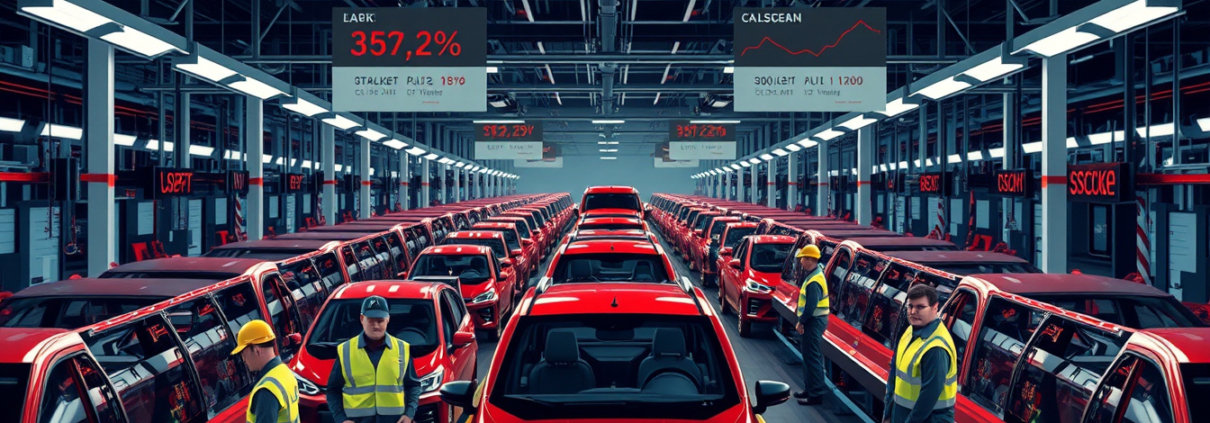Crisis in the Fast Lane: German Auto Industry’s Job Losses Amidst Economic Turmoil
German Auto Industry Faces Severe Job Cuts Amid Economic Challenges
The German auto industry loses many jobs. Data from Destatis under EY show a nearly 7% drop in work, about 51,500 jobs lost by the end of June 2025. This drop shows the links between worker loss and the wider money issues in the country.
Job Losses Hit the Auto Industry Hardest
EY finds that almost half of the 114,000 lost jobs in all German industries came from the auto field. No other sector lost work as fast. Since 2019, the auto field cut about 112,000 jobs. Jan Brorhilker of EY Germany points to falling profits, extra factory power, and weak foreign markets as the main ties that bind these cuts.
Declining Revenues and Profit Warnings
Money flows in the auto field now drop. In the second quarter of 2025, revenues fell by 1.6% over the same quarter a year ago. Big makers like Volkswagen show serious profit drops and lower yearly forecasts. Although a 1.6% fall is less than the 2.1% seen across all industries, the shift raises warning flags for Europe’s largest industrial group.
Multiple Industry Headwinds
The German auto field faces many linked problems:
- Rival makers from China push down prices and spark new ideas.
- Companies cannot lead in the quick electric car market. Some point to slow state actions and hard rules.
- U.S. trade rules, with high taxes on cars, add stress. German makers depend on the U.S., where a "Made in Germany" mark shows high quality.
Exports of cars and parts to the U.S. fell by 8.6% in the first half of 2025 compared to last year. Makers warn that high taxes and trade doubts may hold back future work.
Potential Relief from Trade Agreement Details
Some hope comes from a new U.S.-EU trade deal. The deal sets a 15% tax on autos, but it takes effect only after EU law cuts extra industrial fees. This rule may soon help trade run with more clear steps.
Weak German Economy Adds Pressure
The wider German money scene also shows strain. The nation’s gross domestic product shrank in 2023 and 2024. The start of 2025 was weak. After a small gain of 0.3% in the first quarter, the second quarter dropped by 0.3%.
Brorhilker sees lasting stress on exports toward both the U.S. and China. U.S. taxes slow exports while soft demand from China adds to the challenge.
Industry Restructuring Expected to Continue
Large German companies now cut costs and rearrange work structures to face these hard times. Brorhilker says these steps will mean more job cuts in the auto field.
The German auto industry stands as a key part of the country’s work mix. It now faces a path of deep change as it shifts with new money facts, trade rules, steep competition, and rising needs for electric car work.
Keywords: German auto sector, job cuts, economic woes, Volkswagen, trade policy, U.S. tariffs, electric vehicles, China competition, EY report, industry restructuring
Full money-growing playbook here:
youtube.com/@the_money_grower









